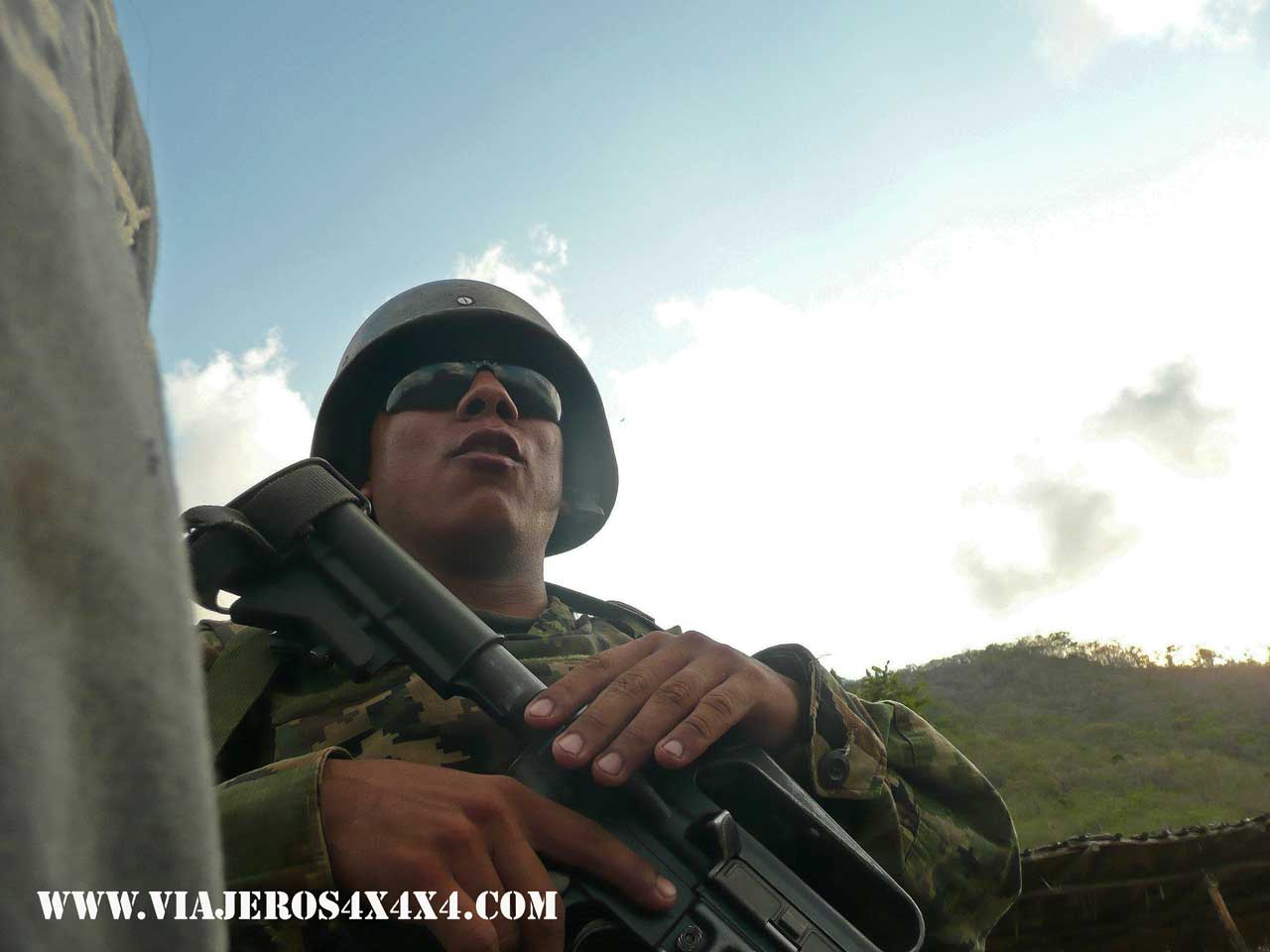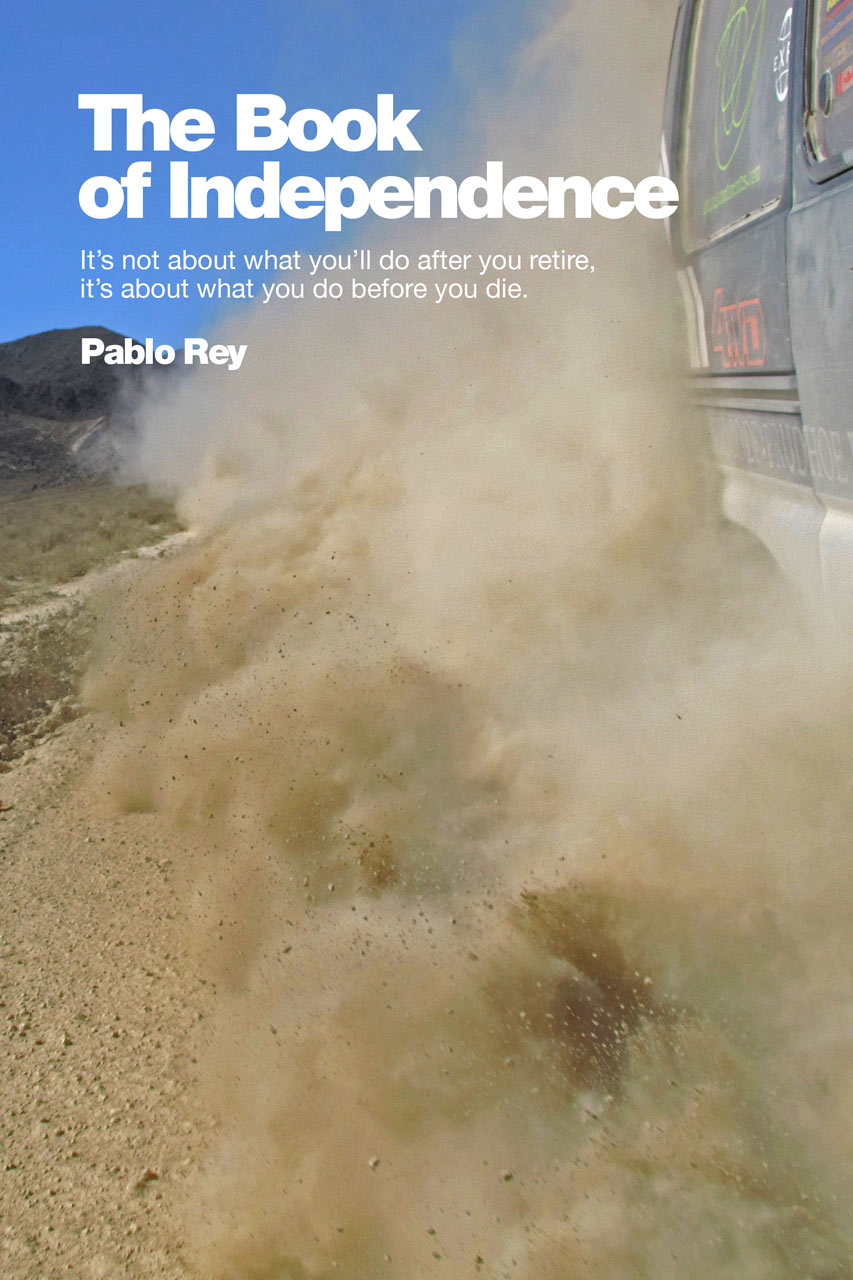284- Security on the Road: Wild encounters with the Police and the Army
©Pablo Rey. Published on Overland Journal Magazine, Winter 2014.
After 15 years overlanding the world, Pablo Rey shares some important tips on how to not end up walking in your underwear on a faraway road in the middle of nowhere.
Fifteen years en route leaves you with a lot of stories about good and bad cops. We have been stopped many times by honest policemen doing their job, and very few times by policemen looking for a bribe to supplement their salary. When it happens, it becomes one of the most repeated topics after a long trip. Any hint of an African or Latin American jail is usually enough for most travelers to put a green note inside the passport and hand it to the policeman. And this is wrong. To bribe a cop to avoid a fine, fair or not, turns you into an accomplice.
Use your head. To avoid these uncomfortable situations the first thing we do is to follow all the rules of the country we visit. If you don’t know them, use common sense. If your vehicle was admitted into a country after being checked by police and customs agents, a bad cop can’t tell you that it is illegal to drive with tinted windows or that you can’t drive with a bull bar. Your vehicle was accepted into the country in that condition. Also, when you enter into a new country, try to get local insurance as fast as possible.
Wait it out. The second thing to do is to be aware that time is a traveler’s greatest asset. Corrupt cops want fast and easy money. If you don’t give them that, and instead you give them some chat, a cup of coffee, and you keep cool, after 20 minutes they will probably look for other prey. If they threaten you with prison, locking up your vehicle, or an array of other things to scare you just keep calm and smile. Sometimes it’s helpful to look like an idiot who doesn’t understand a word of what is being said.

Fake it. If the bad cop achieves his goal of scaring you, the best solution is to have some fake dollars at hand. Colombian fakes are really good and you can’t distinguish them by the naked eye. Bolivian fakes, which are usually burnt as an offering to the Pachamama ( Mother Earth) in rituals, are rougher, like those bearing a Marilyn Monroe image in Las Vegas. The reality, and a big plus, is that the officer will not count the notes in the middle of the road. He will probably put them into his pocket and wait for a happy, solitary moment. I would pay to see his face at that instant.
Make it. An International Driving Permit (IDP) is usually not compulsory, but it is accepted nearly everywhere in the world. It won’t hurt to hand a scanned, printed, and laminated copy (made with love at home) when a policeman asks about your documents. In Nicaragua, for example, the cops often keep your driving license until you pay the fine, real or invented, and an IDP would come in handy.
These are just some of the things we have learned over the last 15 years overlanding the world. If you ask me for a tip, just one, I would say: Be prepared for the unexpected and never show your fear. Even the bad moments can be good in the end. If everything worked perfect during your journey, if nothing wrong happened during your trip, you’ve only been in Florida. And that could be boring.”
••••
READ MORE PABLO AND ANNA REAL TRAVEL STORIES IN THIS LINK
••••

“The Book of Independence works its magic like a bellows on the embers of wanderlust, inspiring us to break away from the norm, to slow down and smell the proverbial roses… or cow or elephant dung. It’s not about what you’ll do after you retire, it’s about what you do before you die.”
Chris Collard, Chief Editor, Overland Journal Magazine

Pablo Rey (Buenos Aires) and Anna Callau (Barcelona) also known as #viajeros4x4x4, have been overlanding the world non stop since 2000 on a 4WD Delica van. They mastered the art of solving problems (breakdowns and police harassment, between them) in far away places, while enjoying their nomadic lifestyle.
They’ve been 3 years driving through Middle East and Africa, between Cairo and Cape Town; 7 years all around South America, and 7 years going to every corner of Central and North America. They crossed the Southern Atlantic Ocean in a fishing vessel, descended an Amazon river in a 6 log wooden raft, and walked with a swiss knife between elephants in wild Africa. On the last two years they started to travel by foot (Pyrenees mountains coast to coast, two months) and motorbike (Asia), with the smallest lugagge possible.
Pablo has written three books in Spanish (one translated in English), many articles to magazines like Overland Journal and Lonely Planet and both are in the short list of the most respected latino overlanders.
¿When will the journey end? It doesn’t end, the journey is life itself.







